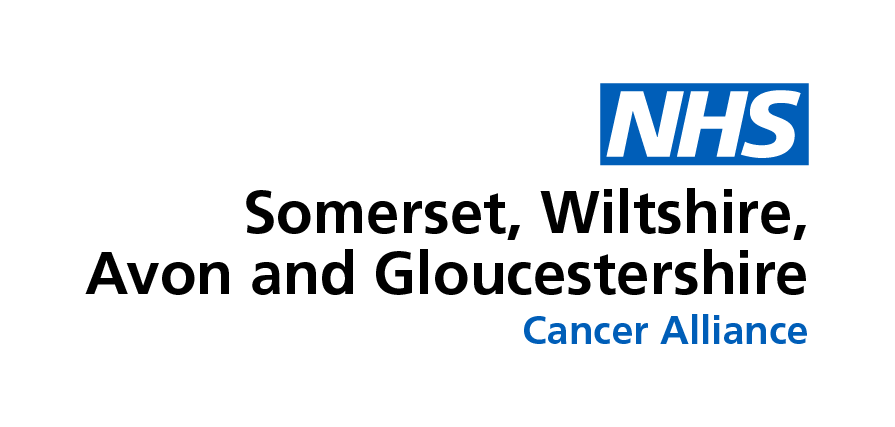Bios
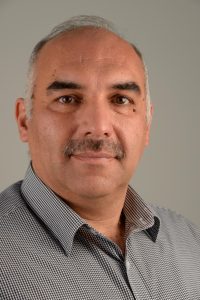
Ali Al-Sherbaz
Associate Professor & Academic Subject leader of Cyber and Technical Computing Department
School of Computing and Engineering at the University of Gloucestershire.
Talk Title: Gloucestershire Clinical Informatic Hub: Potential Projects and Collaboration
Dr Ali Al-Sherbaz is currently the Associate Professor in Mobile and Network Security, and Academic Subject leader of the Technical and Applied computing, school of computing and Engineering at the University of Gloucestershire. He has twenty-five years theoretical and practical experience in researching and teaching at various universities both in the Middle East and in the UK, with good experience in both academic and industrial projects. Ali is the Chair of BCS British Computer Society, member of IEEE (Institute of Electrical and Electronic Engineering), IEEE Communication Society, IEEE Standards Associations and Member in the Institution Engineering and Technology IET. Leading the research active staff within the University and acting as a core member of the School Executive Team, providing strong strategic leadership and quality management for research and enterprise (R&E) activities across the faculty, leading strategically important partnerships for the University of Gloucestershire.
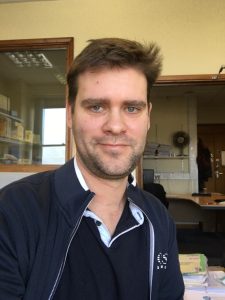
Mark Bailey
Speciality Doctor in Respiratory Medicine and Clinicial-who-codes
Gloucestershire Hospitals NHS Foundation Trust
Conference co-producer
Talk Title: Cancer pathways 2.0
Mark has been very interested in all things digital for most of his life. His digital interests filtered into his current healthcare role when he started thinking of ways to streamline daily clinical tasks. He built a desktop app called “Spiritum”. This houses the Gloucestershire sleep, bronchiectasis and tuberculosis services. It automates the transfer of data within the trust, creating standardised clinical letters, retrieves lab and radiology reports, flagging abnormal ones for clinicians to review, etc. As part of works to improve the sleep service, the Spiritum app helped reduce the breach rate of this service by 79% over a 2-year period. A spin-off from the Spiritum app was an program called “Quick Spiritum”. This uses robotic process automation to automate and speed up routine clinical tasks. These tasks include looking up imaging (eg chest X-rays), bloods and clinical letter and requesting tests and referrals. Quick Spiritum was found to save, on average, 30% of clinician’s time on these tasks. This work has shown what is possible with automation and digitisation, and Mark’s department is keen to tackle the next big issues. Mark and his team have been working over the last one and a half years on improving the local lung cancer pathway using the knowledge gained from the above projects. Mark has two computer science placement students working with him on this project – Joe Channing and Nick Ives. Mark’s team now have a functional “proof-of-concept” app that will be showcased at the Let’s Talk Digital Conference. This app has been created in open source and in a modular fashion. By using open source and a modular build, the hope is to be able to allow other disease sites and trusts to both benefit and collaborate on this work.
Mark is also a big advocate of advancing the clinical informatics speciality. He is a board member of the Faculty of Clinical Informatics, a board member of the NHS pycom (python community) and a current student on the NHS Digital Academy PGDip Digital Academy course. He hopes to progress this to an MSc in September. He is also working with Thiago Viana (see below) to build a new Gloucestershire MSc in Health Tech.

Bea Bakshi
GP & Co-founder, C the Signs
Title of talk: C the Signs Cancer System: A Case Study of Somerset
Dr Bea Bakshi is a GP and Co-founder of C the Signs: a clinical system that uses AI to accelerate early cancer detection. She has previously driven national health policy for the British Medical Association, including negotiating the £3.2bn contract for junior doctors in 2016, and served as Deputy IT Lead for the General Practitioners’ Committee, leading on the digital transformation of primary care. Bea is part of Microsoft’s AI for Social Impact programme, the Start-up Sustainable Development Goal Programme by Google, and sits on the AWS European Clinical Advisory Group. She was selected by the Obama Foundation to be an Obama Leader Fellow, tackling inequalities globally.

Marcus Baw
Clinical Informatician, Software Developer and other roles
Range of organisations including RCPCH, RCGP, Public Money Public Code CIC
For the topic of debate: “This house believes that the NHS should embrace and encourage frontline digital innovation where it occurs”
Marcus Baw is the Immediate Past Chair of the RCGP (Royal College of GPs) Health Informatics Group, and has been working for the RCPCH (Royal College of Paediatrics and Child Health) as lead developer and Clinical Safety Officer on their groundbreaking Digital Growth Charts project. He co-founded the Academy of Medical Royal Colleges Digital Health Group, and is a founding director of the Public Money Public Code CIC. I tend to get very excited about open source in https://blog.bawmedical.co.uk/open-source-is-the-only-way-for-medicine
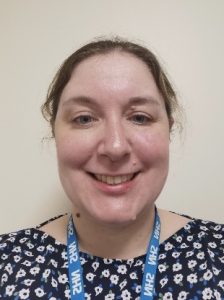
Hannah Berry
Speciality Doctor in Oncology, Musgrove Park Hospital, Taunton
Poster title: Developing an Oncology IT Lead Role
Hannah Berry was part of the first cohort of graduates from Peninsula Medical School in 2007, she first developed an interest in Oncology during her studies and was determined to follow this career path once qualified as a doctor. She has a keen interest in teaching and holds a Post-Graduate Certificate in Education for Teaching and Learning in Healthcare Professionals from Bristol University. She has been involved in training colleagues about the software used for prescribing chemotherapy for over 7 years and was awarded the title of IT Lead in December 2021. She is keen to develop this role further and is now involved in the training and development of various software systems.
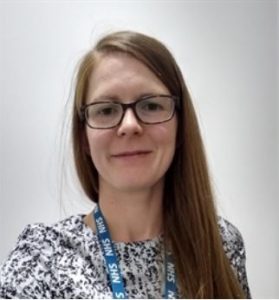
Hannah Bonnett
Senior Clinical Transformation Specialist, North Bristol NHS Trust
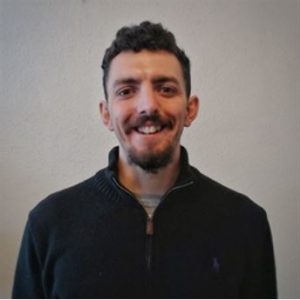
Josh Denoual
Implementation Lead, North Bristol NHS Trust
Poster title: Transforming the digital process to managing the acute take
Hannah and Josh are both members of the Electronic Patient Record (EPR) Programme at North Bristol Trust, working across the Emergency Zone to implement new clinical systems and improve the digital experience for our clinical colleagues. Josh is the Implementation Lead and works closely with the supplier to ensure that all technical requirements are met and that our systems are configured suitably for any local needs. Hannah is the Senior Clinical Transformation Specialist and a Junior Doctor by background. Hannah works with our clinicians to understand the challenges they face, help to develop our technological solutions, and to ensure that everything we deliver is clinically safe. Hannah and Josh are excited about the successful launch of the trust’s EPR.
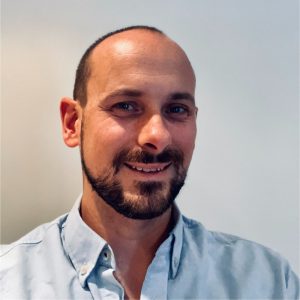
Phil Brierley
Cancer Informatics Director, Inspirata
Talk title: AI as a digital disruptor in trials recruitment
Phil has spent the last 10 years working directly with secondary, regional and central NHS organisations along with global partners brining cutting edge technology to the healthcare sector. He has done this both with a UK focus at Civica and with a European directive at IBM and now Inspirata, and is a firm believer in technology’s ability to truly disrupt the status quo and drive positive change in healthcare

Joe Channing
Placement computer science student, Gloucestershireshire Hospitals NHS Foundation Trust
Poster title: Digital Lung Cancer Pathway
Joe is a cyber security student at the University of Gloucestershire, on placement at Gloucestershire Hospitals NHS Foundation Trust developing a digital lung cancer pathway proof-of-concept. A few years ago, he started programming simple utilities and websites. Nothing by large, but enough to get him interested in the big bad world of software engineering. A nerd at heart. Infinitely curious. Tinkerer.
Poster title: Developing an online group programme for integrative cancer treatment support: initial evaluation
by:
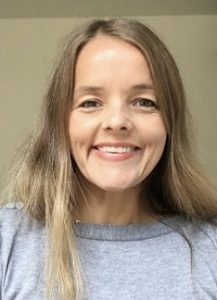
Sarah Churchward
Evaluation Lead at Penny Brohn UK
Sarah Churchward has been working in the Research and Evaluation team at Penny Brohn UK since 2018, becoming Evaluation Lead in 2020. She has a background in social research and recently completed a Masters of Research in Health & Wellbeing at the University of Bristol. Sarah is particularly experienced using qualitative methods and has a keen interest in better understanding how and why interventions work, for whom and in what situations. She is passionate about ensuring service users’ needs and experiences shape intervention development.
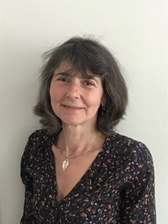
Catherine Zollman
Medical Lead at Penny Brohn UK, Clinical Lead for Personalised Care & Support at SWAG NHS Cancer Alliance
Catherine is Medical Lead at Penny Brohn UK, a charity specialising in providing Integrative Support and Self-Management Education for people affected by cancer. She is also an NHS GP, an Honorary Lecturer at the University of Bristol and is Clinical Lead for Personalised Care and Support at the Somerset Wiltshire Avon and Gloucestershire Cancer Alliance. She is an Executive Committee member of the British Society for Integrative Oncology and Global Ambassador to the UK for the international Society for Integrative Oncology.
Dr Zollman has a longstanding interest in medical education and in promoting and disseminating good quality research into integrative medical approaches. She believes that all medical encounters are an opportunity to help people learn how to how build their own resilience as a key part of managing their symptoms and improving their health.
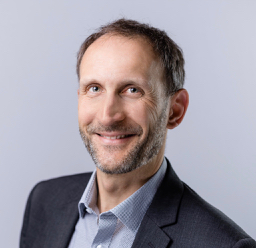
Adam Dangoor
Medical Oncologist, CCIO, and lead for the Digital Patient Programme
University Hospitals Bristol and Weston NHS Trust.
Talk title: Digital Innovation in the NHS. Why is it so hard?
Adam is a consultant medical oncologist, and one of the CCIOS for the Bristol & Weston trust. He is leading the Digital Patient programme which is using the DrDoctor platform to provide better communication and information sharing between patients and hospital teams. He is also oncology advisor for Doctors.net. He has been interested in IT since 1983 when he had a ZX Spectrum game published in Sinclair User magazine.
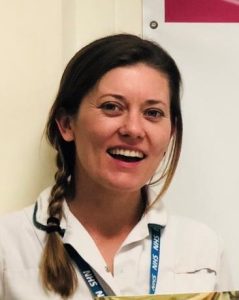
Charlotte Dingle
Occupational Therapist, North Bristol Trust
Poster title: Collaboration to Improve Digital Communication in BNSSG
Charlotte is currently on secondment at the North Bristol Trust (NBT) Electronic Patient Record (EPR) programme. Since she qualified in 2010 she has specialised in working with older patients. She enjoys meeting people from a range of backgrounds and hearing about their diverse life experiences. Charlotte uses the rapport she has built with patients to work in a client-centred way to help patients get back to their own home.
Charlotte’s other passion is for helping colleagues to work in the most effective and efficient way possible. This is why Charlotte joined the EPR programme at NBT . She can see the great potential that digitising information and using one inter-connected system has for patients and staff alike. The work Charlotte has been doing on the Single Referral Form is one example of this.
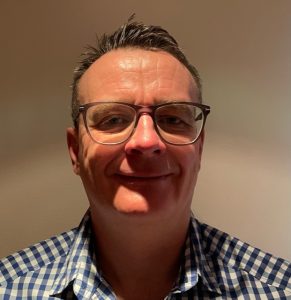
Matthew Dolman
GP Somerset
Clinical Lead BRAVE AI Somerset CCG
South West PCN Clinical Lead NHSEI
Talk title: A BRAVE conversation using AI driven visualisations in Somerset
I have been a GP for 25 years in Somerset, including being part of a fantastic team in the community. I have had senior leadership roles at CCG / system level. My career in healthcare has shown me the huge opportunities that are possible from using population intelligence data. This data enables safer and better outcomes for our patients.
The BRAVE AI project has evolved over 5 years and uses a risk stratification neural network to predict a person’s risk of admission to hospital in the coming year. It also predicts the annual demand on primary care. It was conceived at the outset to have a person centred perspective, using a simple visual interface to support patients and healthcare teams. BRAVE AI now has functionality at a locality / PCN level to visualise different cohorts of patients eg care home / cancer diagnosis / diabetes.
I have a personal interest in how we can design and use digital innovations with patients, families and carers and how we work together as teams at a locality level . Primary care networks are well positioned to be the building blocks of locality based care. Developing the digital infrastructure to enable that is a key priority over the next few years.
Paul Downie
Chief Clinical Information Officer & Clinical Safety Officer, Gloucestershire Hospitals NHS Foundation Trust
Against the topic of debate: “This house believes that the NHS should embrace and encourage frontline digital innovation where it occurs”
Paul has been a consultant in Intensive Care Medicine and Anaesthetics in Gloucestershire since 2010. He has been the Chief Clinical Information Officer since 2015, and been involved with Health Care IT implementations both in the UK and at the University Of Malawi. He has contributed to the Implementation locally of the Patient Administration System (PAS) replacement, the Laboratory Information Management System (LIMS), and the Electronic Patient Record (EPR) at the trust, including the Shared Care Record across Gloucestershire.
He is a graduate of the NHS Digital Academy, and a NHSD certified Clinical safety Officer. He is a Member of the Faculty of Clinical Informatics
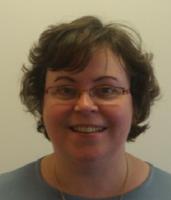
Joanna Dundon
National Clinical Informatics Lead – Public
Engagement lead & Chair of Patients and Public Assurance Group
Digital Health and Care Wales
Talk title: IRENE Hub (embedding innovation, research and expertise into practice)
Joanna has been working at Digital Health and Care Wales and its predecessor organisation, NHS Wales Informatics Service since 2008. DHCW is a special health authority responsible for digital health and data in Wales. She is Engagement Lead for Digital Services for Patients and the Public Programme where she is involved in developing the NHS Wales App for patients and the public to view, add and share information with health and care professionals, carers and those of their choosing. She is keen that the public have access to up to date, accurate, relevant and easily accessible health information to help them to find out about and cope with their conditions, and empower them to co-produce their care with their health and care professionals. As part of her role she has been collating an alignment catalogue for innovative projects and ideas which could be added to the App’s core services.
She spent 21 years at Aneurin Bevan University Health Board in South East Wales, and its predecessor organisations as Strategic Health Evidence Manager and previously as Library Services Manager. She began her career as Abstractor/Indexer at the King’s Fund in London after graduating with an honours degree in Librarianship and Information Studies. She has written and co-authored articles and book chapters on librarianship and use of information technology in health, and three systematic reviews. She has worked with health and care professionals and industry partners to support innovation through Bevan Commission exemplars and Welsh Health Hacks. She developed the IRENE Hub to support innovation, research, expertise, needs and evaluation in DHCW and is a member of the Welsh Institute for Digital Information Operational Board and DHCW’s Research and Innovation Working Group. She is the Wales representative on the Patient Information Forum Advisory Group (2016-present) and is a member of OfCom’s Communication Consumer Panel for Wales and Digital Inclusion Alliance Wales Network. She is also on PRSB’s Shared Decision Making Information Standard Advisory Board and is PPIE Lead for the Health Foundation Networked Data Labs project covering five areas including Wales.
Her interests are photography, travel and visiting archaeological sites and museums around the world.
Poster title: Drivers of crowding in type 1 EDs: ecometric model and its implementation in R
Economics and Strategic Analysis Team, NHS England and Improvement
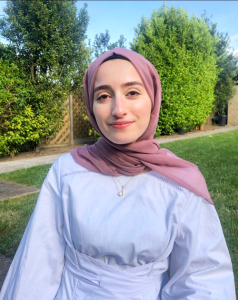
Ranya Alakraa

Edmund Haacke
The Economics and Strategic Analysis (ESA) team forms part of NHS England and NHS Improvement’s Office of Chief Data & Analytics Officer (CDAO). Our purpose is to support the NHS to deliver better health and care to citizens and patients through the use of data and by providing robust and impactful evidence-based analysis. The team has been working on a project looking at the drivers of crowding in type 1 A&E departments. The project was motivated by the availability of new, more timely data on emergency departments through FasterSUS, the policy shift away from staying times to crowding as led by the Clinical Review of Standards, and an evidence gap in using econometric methods to isolate and quantify the drivers of A&E crowding. The team has also made the code used for the model available to all users across the NHS meaning others can utilise our code to run the model for themselves and adapt it to suit their needs.
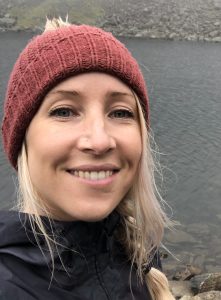
Rachael Goddard, Respiratory ST5, Gloucestershire Hospitals NHS Foundation Trust

Andy Holness
Patient & People’s Voice Partner (Brain Tumour & Palliative and End of Life Care) for SWAG Cancer Alliance
Talk Title: A patient’s and family’s voice
Andy brings his lived experience, including the story of his son Matthew’s brain tumour and end of life, to promote personalised care and co-production. He is a member of:
- The NHSEI Personalised Care National Strategic Coproduction Group
- The National Palliative & End of Life Care Strategy Group
- The Gloucestershire CCG Palliative & End of Life Care Strategy Group
- His local surgery “New ways of working” team
- Gloucestershire Cancer Patient Reference Group
Andy is also Patient & Public Voice to the Somerset, Wiltshire, Avon and Gloucestershire Cancer Alliance and Chair of his local Patient Participation Group. He’s presented “Matthew’s Story” to many regional and national groups to promote personalised care and co-production.
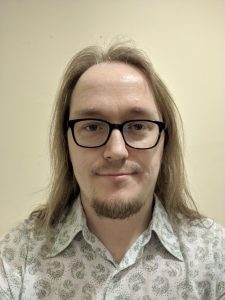
Nick Ives
Computer Science placement student, Gloucestershire University
Poster title: Digital Lung Cancer Pathway Prototype System
Nick is a student studying Computing at the University of Gloucestershire. He is currently in his third year and on placement at Gloucestershire Hospital NHS Foundation Trust, where he is collaborating with clinicians in developing a digital lung cancer pathway. Nick is interested in developing software, and has been focused on developing a prototype user experience that meets clinicians expectations.

Claire Lambie
Chief Nurse Information Officer at NHS Gloucestershire CCG
Poster title: SWASFT Connector Programme: Discovery. Sharing the right patient information with clinical staff in South Western Ambulance Service Foundation Trust.
Claire has worked in Health Informatics both within the NHS and externally for eleven years. In her current role she is committed to putting people at the heart of digital transformations within her Integrated Care System (ICS). A key requirement of the role is acting as interpreter between care, operational and digital colleagues to ensure that true transformation is achieved.
Claire is a Topol Digital Fellow and has delivered a Discovery project exploring the challenges around patient information sharing with an ambulance trust covering seven ICSs with six separate Shared Care Records.
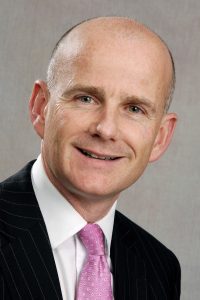
Michael Marsh
Regional Medical Director and Chief Clinical Information Officer NHS England and Improvement
South West Region
Chair & Closing talk
Dr Michael Marsh trained at Guy’s Hospital Medical School and qualified in 1986. He then undertook postgraduate training in paediatrics in Poole, Oxford and London. Most of his paediatric training was at the Evelina Children’s Hospital and Guy’s and spending 3 years in research in the New-born Respiratory Unit at St. Thomas’ Hospital looking at the effects of maternal smoking on lung growth and development. He was appointed as a consultant in paediatric intensive care in 1995 at Guy’s and St. Thomas’ Hospitals before moving to University Hospital Southampton (UHS) in 1998 to establish a new paediatric intensive care unit. He was director of paediatric intensive care for 9 years before becoming clinical director of paediatrics and then divisional director of Women and Children’s Services.
Dr Marsh was medical director at UHS from 2009-2015 a period in which there was an increase in consultant numbers of more than 100 with development of many of the regional services. He provided strategic leadership along with the Dean of the medical school for research during which time the NIHR invested significantly in the Respiratory and Nutrition Research Units.
In 2015 he became medical director for specialised commissioning in the London Region whilst continuing his clinical work in paediatric intensive care until the end of 2016. In 2016 he was appointed as a Non-Executive Director at Salisbury NHS Foundation Trust a post he held until 2019.
In 2019 he took up the post of Regional Medical Director and Chief Clinical Information Officer for the newly formed NHS England and Improvement in the South West Region. He is passionate about high quality services and believes we should always aspire to provide excellence in care for patients especially the disadvantaged and vulnerable.

Peter Nuckley
Head of User Centred Design in the Regions, NHS England, South West
Chair – unfortunately had to cancel
Peter’s role is to help support the growth of User Centred Design in regional service transformation. He has been a service designer in the public and 3rd sector for a number of years, concentrating on trying to create equitable service for everybody. He tries to make sure that those voices that are seldom heard are at the heart of service transformation.
Peter was previously the Deputy Director of Design at Thrive by Design – developing the Inclusive Digital Transformation Programme and Head of Service Design at Good Things Foundation – leading the Widening Digital Participation Programme.

John O’Connell
Director of Strategic and Service Innovation, NHS SCW
Chair
John is responsible for (i) leading the development of SCW’s approach to innovation (ii) leading the development and delivery of SCW’s Artificial Intelligence and Data Analytics consultancy offer (iii) Executive lead for the “Bath and North East Somerset, Swindon and Wiltshire Clinical Commissioning Group” development. John’s key focus is a ‘customer focused’ change maker, working collaboratively with other senior leaders within the organisation and across the NHS to constructively challenge and disrupt through experimentation and practice, agree and define new methodologies to be adopted to ensure innovation is embedded as part of SCW’s and the NHS’s ways of working.
Passion areas: Innovation fuelled by creative curiosity using data, analytics and AI applied for social good, particularly in support of the sustainability goals to reduce health inequalities. Outside of work, a bit of a bibliophile who enjoys cycling and ‘trying to’ play guitar but not all at the same time.
Sally Plumb
Senior Programme Manager – Digital Community Health
Talk title: Virtual Wards & tech-enabled Remote Management: National direction and South West activity
Poster title: Digital Transformation of Children & Young Peoples Mental Health Support
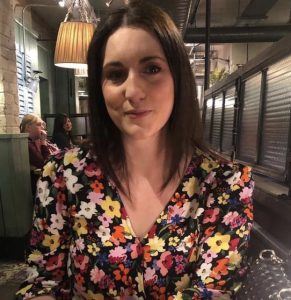
Charlie Presley
Partnership & Inclusion Deputy Manager, Gloucestershire Health & Care NHS Foundation Trust
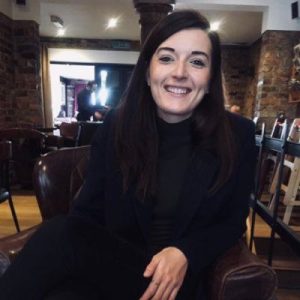
Beth Gibbons
Service Improvement Manager – Children’s Mental Health & Maternity, NHS Gloucestershire Clinical Commissioning Group
Charlie and Beth have been working on a new digital mental health support finder over the past 12 months, to improve the digital experience of looking for mental health support for children and young people.
Charlie’s role has been key in engaging young people, key partners, professionals and VCSE organisations who work with young people to gain user-research insights to inform the product build. Beth has worked with the technical and development teams acting as product owner and bridging the gap between traditional NHS methods and agile working. Building on our collective knowledge of the system and user-research we have been able to develop a minimum viable product that we will look to continuously improve for the county and benefit of others via opensource.
Our poster has been developed by a local young artist, Jussura Nazare, who worked with us to develop a range of marketing materials to support the launch of the resource in her own interpretation.
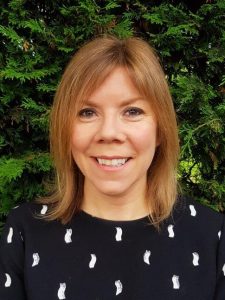
Andrea Preston
Macmillan Divisional Lead Pharmacist – Haematology
University Hospitals Bristol & Weston NHS Foundation Trust
Talk title: Digital innovation in Pharmacy – App Technology & Artificial Intelligence to enhance Cancer Medication Safety
Andrea is the divisional pharmacist for haematology at University Hospitals Bristol & Weston NHS Foundation Trust, where she leads a team of Cancer Specialist Pharmacists and Medicines Management Technicians. She is Chair of the UK Myeloma Forum Pharmacist Group and plays an active prescribing role for patients with multiple myeloma and amyloid.
Andrea is passionate about research and innovation for patient benefit. She is a NHS Clinical Entrepreneur with NHS England and NHS Improvement’s Innovation, Research and Life Sciences group and a member of the British Oncology Pharmacy Association’s Audit & Research Committee. Her areas of research interest include medication adherence, dosing in obesity and the use of innovative technologies to improve the safety of systemic anticancer therapy.
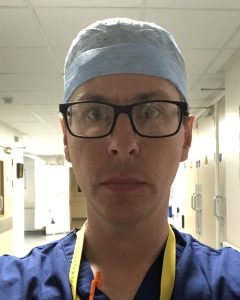
Neil Ryan
SpR in academic gynaecology oncology, Bristol.
GMSA Lynch syndrome Lead for the South West.
Talk title: Lynch Syndrome: The G”App” in care
Neil was awarded a personal MRC fellowship to undertake a PhD at the University of Manchester (UoM). Neil’s PhD led to a change in NICE guidelines along with numerous publications, presentations, invited lectures and awards. Neil’s work was recognised by a President’s Doctorial Scholarship and awarded the UoM’s highest postgraduate award: The President’s Medal. Neil was recently awarded the William Blair Bell Lecture by the RCOG. Neil has been invited to sit on several national and international committees including BGCS’s guideline subcommittee.
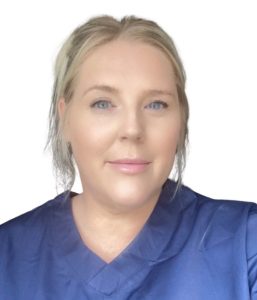
Rebecca Saunders
Digital Changemaker Community Lead, North Bristol Trust, based at Southmead hospital
Poster title: – Digital Changemakers
Rebecca is a registered nurse, most recently having worked on the stroke ward at Southmead Hospital. Rebecca has always had an interest in technology and has previously progressed to the position of digital link/lead nurse. In this position Rebecca helped to introduce the electronic handover tool, enabling the ward to go paper lite. She has also been part of traing of staff in digital technologies.
Rebecca took up the role of the digital changemaker community lead in July 2021. At this point the team had 69 digital changemakers (DCMs) and Rebecca quickly engaged strategies to engage with staff and increase sign up. She very proactively emailed managers, showcased via posters, held drop-in sessions and started actively recruiting by going to people’s places of work. The DCM community is now circa 300 strong and growing every week. On top of this Rebecca has taken on the role of superuser lead. In this position she is developing the DCM programme, defining the DCM role and creating a community for DCMs. She has shown great support for the DCM role and has created a positive working environment where people can readily acccess support from each other and the programme.
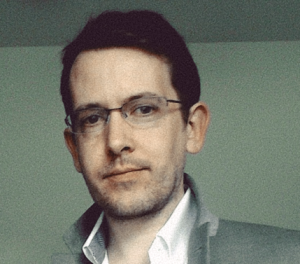
Craig Robert Shenton
Senior Data Engineer
NHS England, Medical Directorate
Talk title: Social Coding for Collaboration, Learning, and Career Development
Certified data engineer with extensive experience in the fields of applied mathematics, analytics, cloud computing, and open-source software development. At NHSX I developed the Azure/UDAL cloud environment for several data and analytics projects including the NHS App, Digital First – Primary Care, and the “Digitise, Connect, & Transform” programme. Most of my work is done in python and made open-source, including many Azure Data Factory resources, utilities, and template pipelines.
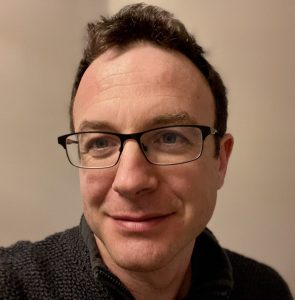
Henry Steer
Respiratory Consultant and Gloucestershire and SWAG lung cancer lead
Gloucestershire Hospitals NHS Foundation Trust
Chair
Henry has been working as a consultant in respiratory medicine in Gloucestershire since 2013 after completing a PhD research post in 2011 investigating chemoimmunotherapy for use in mesothelioma in Western Australia. His research interests filtered into his consultancy post and he is now the lung cancer lead for Gloucestershire hospitals and also the lung cancer lead for the SWAG cancer alliance. On top of all of this, he has taken on the role of respiratory department lead during the most demanding time the department has ever seen during this pandemic. He has been keen to improve the Gloucestershire lung cancer pathway and has been pushing for a digitised pathway since 2016.
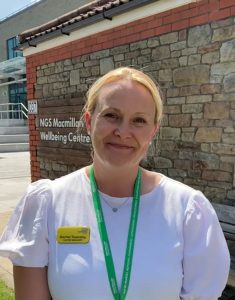
Rachel Townsley
Macmillan Wellbeing Centre Manager, Staff Nurse, Southmead Hospital
Rachel is a registered General Nurse since qualifying in 1999 and went on to specialise in Oncology and Palliative Care. Rachel has worked in a variety of settings including in-patient, hospice and community. Rachel has worked in the Macmillan Wellbeing Centre, Southmead Hospital, Bristol since October 2020, providing specialist information and support to patients, families and colleagues, and operational centre management.
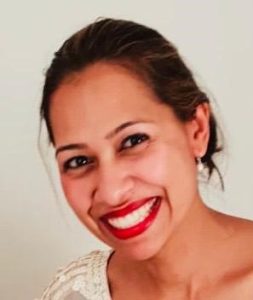
Mala Ubhi
GP Partner, Cheltenham
GP Member, Governing Body, Gloucestershire Clinical Commissioning Group (CCG)
Gloucestershire CCG Lead for Learning Disability, Autism, Mental Health and Equality, Diversity and Inclusion
National Mental Health e-RS Lead and Clinical Advisor in Digital Productivity, Transformation Directorate, NHSE/I
Cohort 4, Digital Academy
Talk Title: Transforming Referrals with Digital Specialist Advice

Grant D. Vallance
Information Manager for the Department of Clinical Haematology, Oxford University Hospitals Foundation NHS Trust
Talk title: Confessions and Lessons from the Coalface of NHS Clinical Informatics
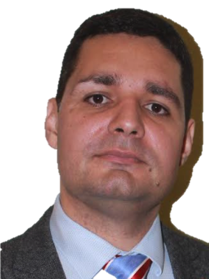
Thiago Viana
Senior Lecturer in Computing
Academic Course Leader for MSc by Research in Health Technologies
Academic Course Leader for Digital & Technology Solutions Apprenticeship
University of Gloucestershire
Conference co-producer
Thiago is an experienced lecturer with an international background having worked with Universities inside and outside the UK. He has many years of experience in higher education, both in teaching and in participating in different research projects. Also, he is a Fellow of the Higher Education Academy in the UK, a member of the IEEE (Institute of Electrical and Electronic Engineering), and the Chair of the Cheltenham and Gloucester BCS (British Computer Society) branch committee.
Thiago’s research interests include software engineering, cyber analytics, health technologies and their relationship with humanistic areas, particularly, modelling human behaviour. On top of his academic background, he has worked as a software and security engineer in the private sector for many years.
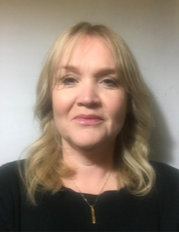
Helen Winter
Medical Oncologist, Bristol Haematology and Oncology Centre and SWAG Cancer Alliance Clinical Director
Conference co-producer
Talk title: AI as a digital disruptor in trials recruitment
Chair
Medical oncologist committed to deliver excellence in cancer care through research, multi-professional education and service innovation. As SWAG Clinical Director, the recognition of the challenge and opportunity to deliver on the Long Term Plan drives Helen to accelerate faster, earlier diagnosis to ensure ALL patients receive rapid access to diagnostics and are fast-tracked to optimise treatment strategies.
Cancer genomics heralds new opportunities for patients to access targeted therapies and more tailored medicine. In this era of Immuno-oncology (IO) and Precision Medicine the upskilling and empowering of the workforce and patients is integral to deliver world-class therapies and care. The development of the SWAG-Velindre Regional IO Education Forum has strengthened the sharing of best-practice and addressed learning needs of the multi-professional participants. Microlearning embedded in the workplace will consolidate this learning for the workforce looking after patients on IO.
Working with a commercial partner SWAG Cancer Alliance are exploring an AI Clinical Trials Navigator Tool to ensure ALL eligible patients have the opportunity to consider participating in a clinical trial and contribute to the acceleration of new therapies.
